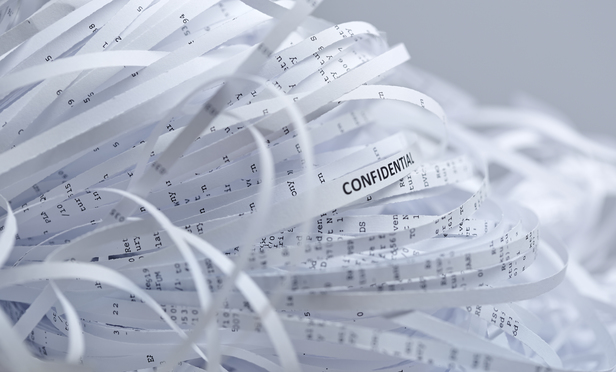Businesses may be confronted with situations in which they are required to submit trade secrets or confidential information to governmental entities. In cases considered by the Commonwealth Court recently, the information has included the rates paid to managed care organizations by Department of Public Welfare and hotel occupancy rates reported to a convention center authority. Governmental entities may then receive Right-to-Know Law requests from citizens. The problem faced by businesses is: How can they protect their trade secrets and confidential information from disclosure as the result of a Right-to-Know request?
Last year, the Commonwealth Court addressed this issue in Department of Public Welfare v. Eiseman, 85 A.3d at 1117 (Pa. Commw. 2014). The Commonwealth Court began its analysis by noting that the current Right-to-Know Law contains a presumption of openness as to any records in an agency’s possession, according to Bowling v. Office of Open Records, 75 A.3d 453, 467 (Pa. 2013). Furthermore, records in possession of a commonwealth agency are presumed to be public unless they are: (1) exempted by Section 708 of the RTKL; (2) protected by a privilege; or (3) exempted (under any other federal or state law or regulation or judicial order or decree). In Eiseman, the Commonwealth Court held that to the extent that financial information constitutes trade secrets, that information may be redacted in accordance with the Pennsylvania Uniform Trade Secrets Act, 12 Pa. C.S.A. Section 5301 et seq. The act provides protection because it protects against misappropriation of trade secrets, which includes disclosure without consent. The Eiseman court applied the definition of “trade secret” in the act, which is, “information including a formula, drawing, pattern, compillation, including a customer list, program, device, method, technique, or process that: (1) derives economic value, actual or potential, from not being generally known to and not being readily ascertainable by proper means by other persons who can obtain economic value from its disclosure or use; [and] (2) is the subject of efforts that are reasonable under the circumstances to maintain its secrecy.”
This content has been archived. It is available through our partners, LexisNexis® and Bloomberg Law.
To view this content, please continue to their sites.
Not a Lexis Subscriber?
Subscribe Now
Not a Bloomberg Law Subscriber?
Subscribe Now
LexisNexis® and Bloomberg Law are third party online distributors of the broad collection of current and archived versions of ALM's legal news publications. LexisNexis® and Bloomberg Law customers are able to access and use ALM's content, including content from the National Law Journal, The American Lawyer, Legaltech News, The New York Law Journal, and Corporate Counsel, as well as other sources of legal information.
For questions call 1-877-256-2472 or contact us at [email protected]



